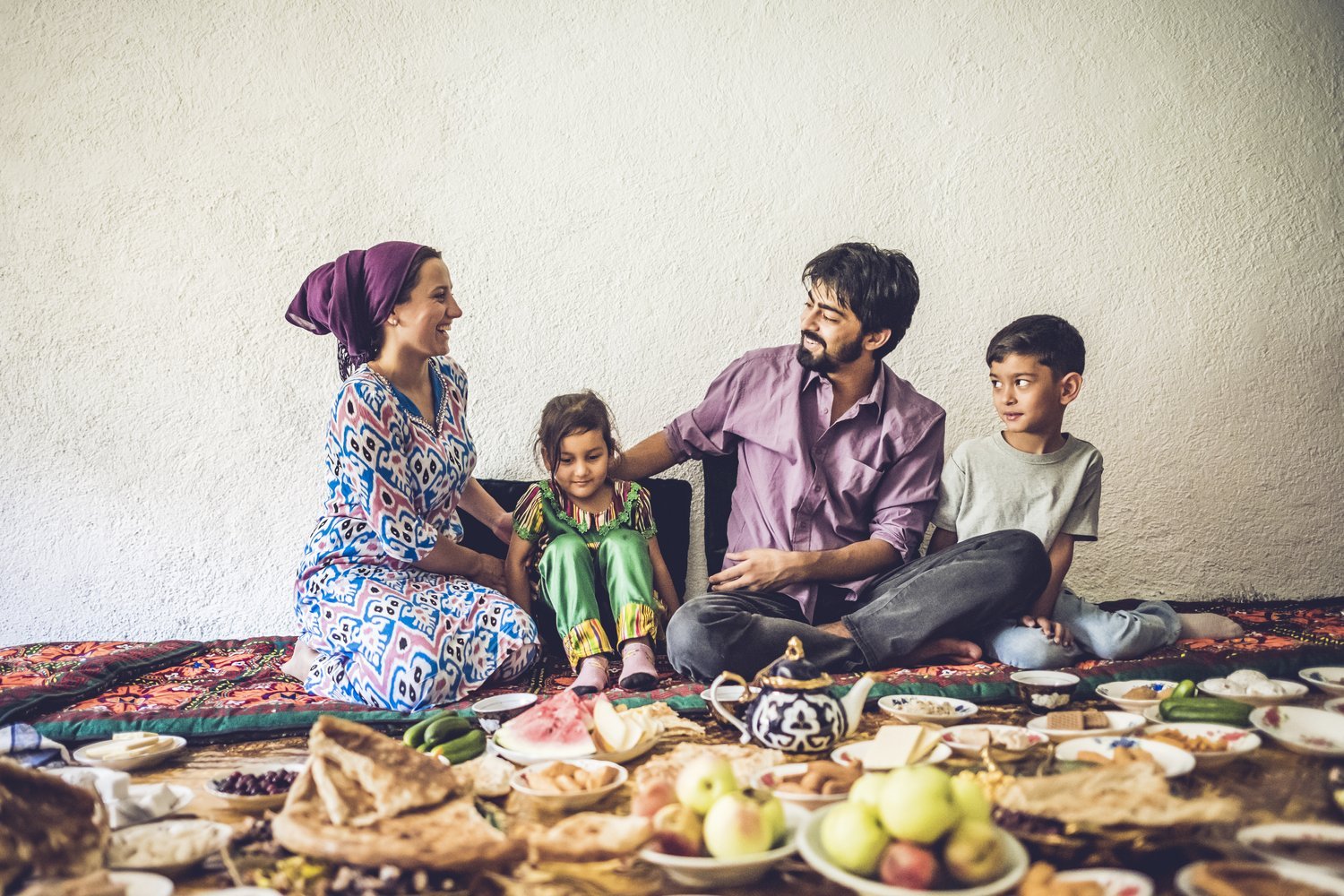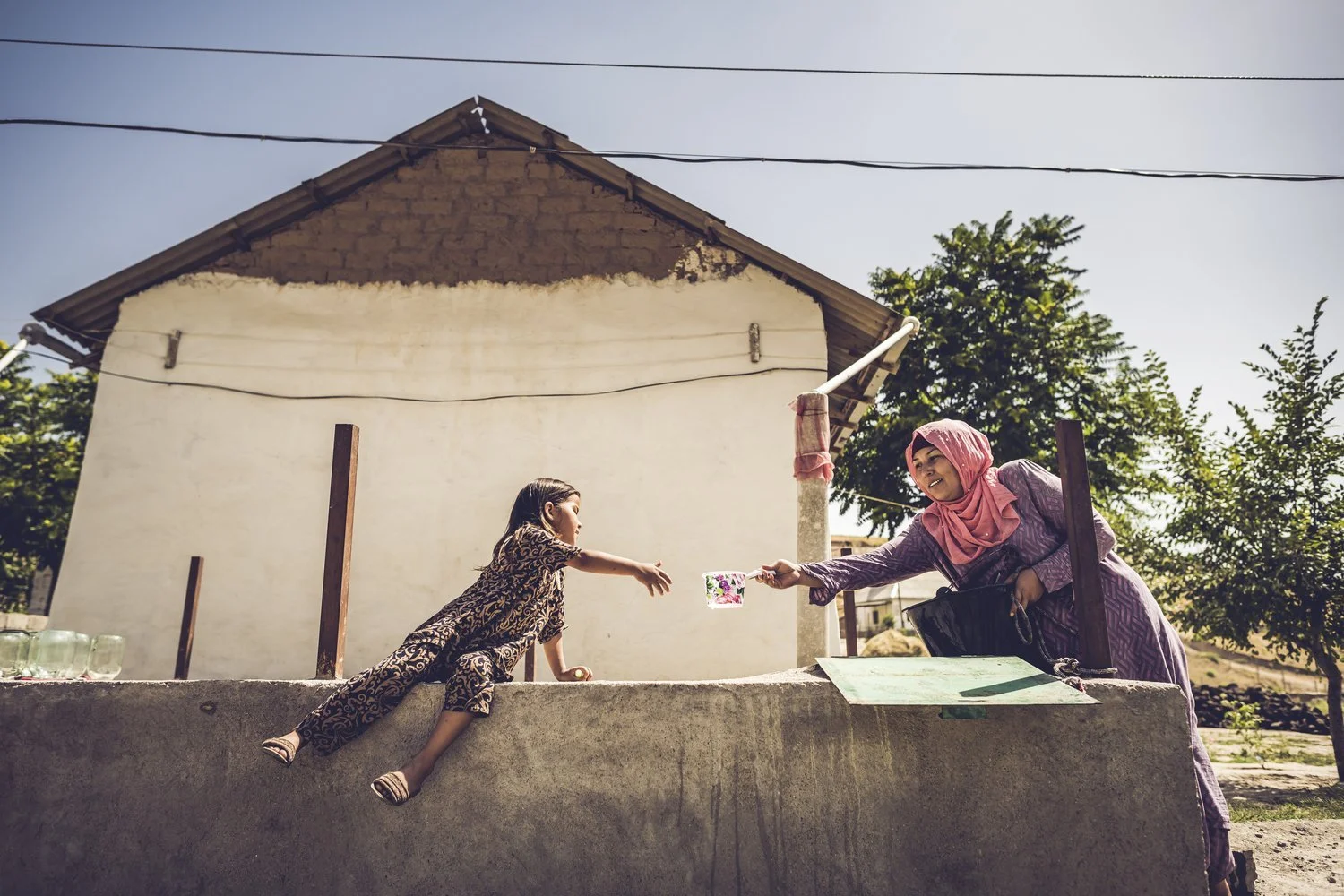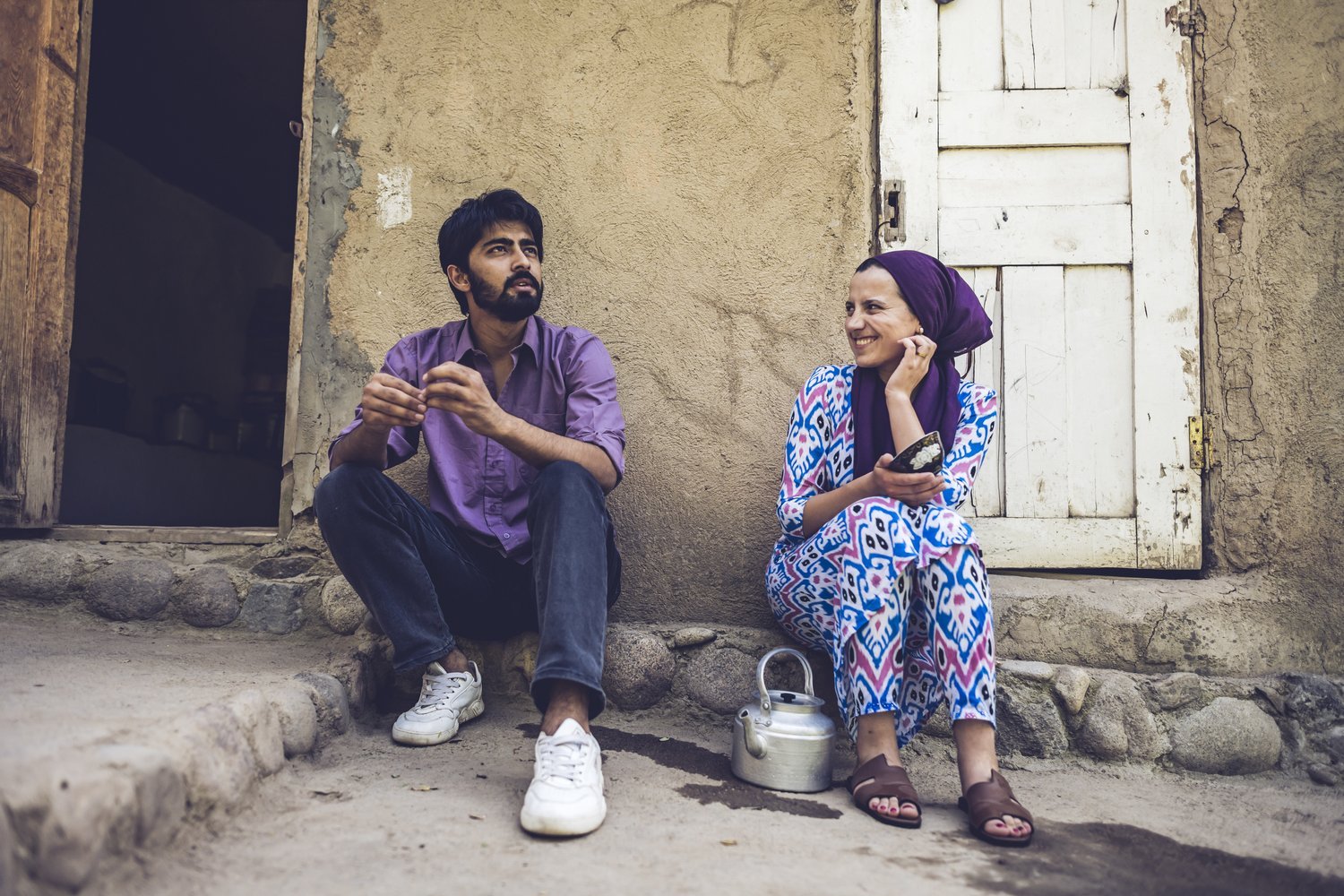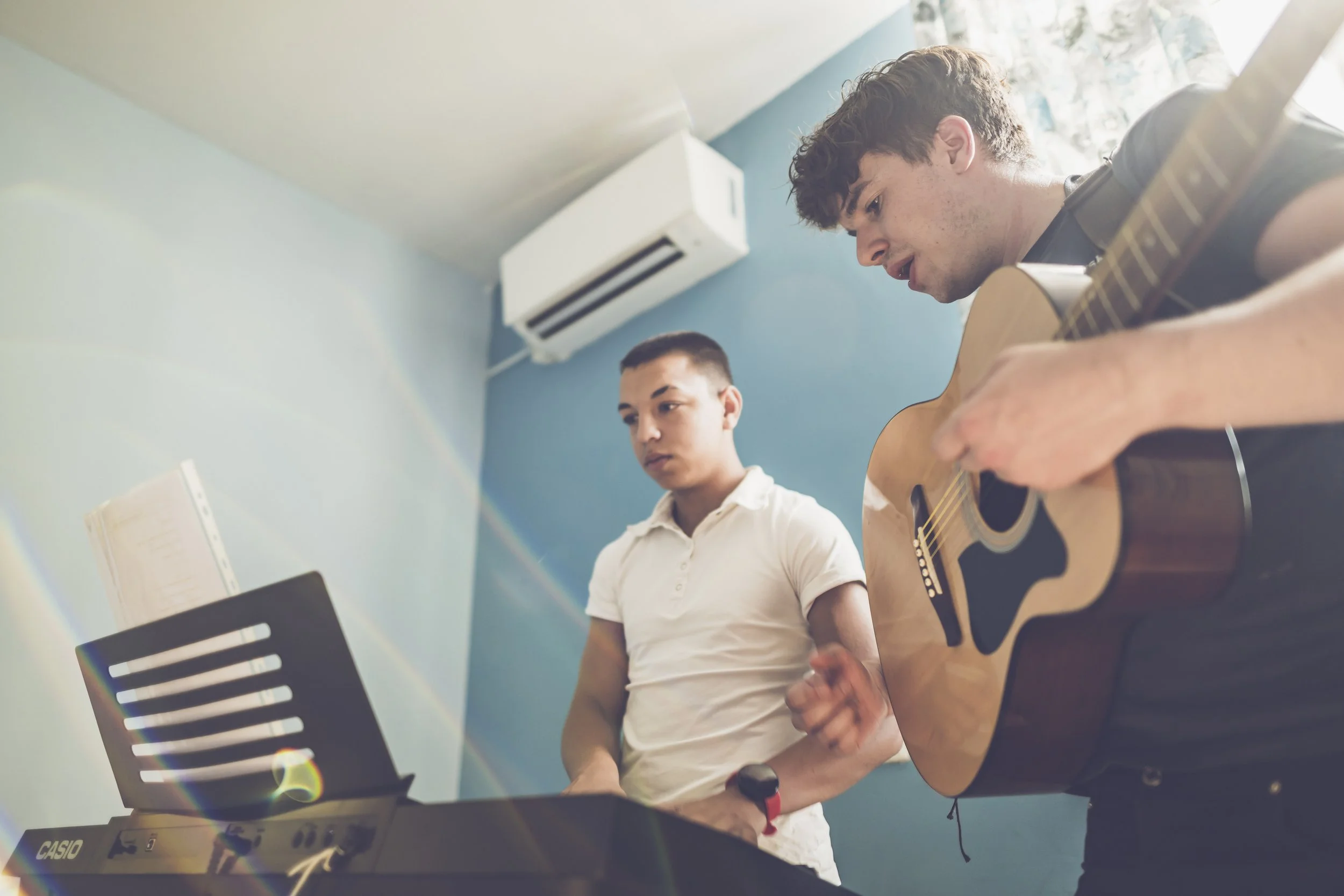The Long Work
A One Collective worker’s experiences, expectations, successes, and failures along the way with women’s empowerment and community development in Central Asia
December 8th, 2023 | Rebekah Teuscher
“Can you share a bit about your early experiences with how women were treated in this culture?”
“I first came over to focus on engineering, so I didn’t have a specific women’s empowerment vision. All I really knew is that women were looked down upon here, and were treated like second-class citizens. There was a very naive part of me thinking, ‘I get to show that I’m a young woman that’s single, unmarried, and I have this degree. Maybe I can be an example for local women that there is a different way to live than just being married at 18.’ That was my expectation, but definitely not how things panned out.
Once I had learned enough of the local language to start going into nearby villages, both men and women were surprised to see me - the sentiment I felt was, ‘she’s the engineer, really?’
But I also saw how big of a difference local followers of Jesus made in this cultural belief. There was one instance where a dear, older local believer our team works with and I went into a village to do a water engineering project. I was the only woman working with a group of men, and this local believer was in many ways my advocate. In this culture, it’s expected to shake hands or nod and greet everyone, depending on your gender. As a woman, I couldn’t shake hands but I did nod to everyone - and none of the village men acknowledged me in return.
I was showing where the tap stands should go and the men in the village disagreed… because they wanted the taps closer to their individual houses. I tried to explain more of the reasoning behind what I suggested, but they just went to talk to the local believer and told him ‘we’re just going to wait until a different man comes back and we’ll tell him.’
But this local believer advocated for me and said, ‘No, she’s the engineer. She knows what she’s doing, and we should listen to her.’ I just love that story because it points to how following Jesus can really change the way you interact with and advocate for women. This 60-year-old man who loves Jesus stood up for me, because he recognized that the tension was based on the fact that I was a woman.”
Lily*
One Collective Worker serving in Central Asia
*Name has been altered for Security Reasons
“So if you started with an engineering focus, why did you start to shift to more of a women’s empowerment and community development focus?”
“Over time, we shifted focus from water engineering projects to more general community development. That was for a lot of reasons - but one is because with water engineering projects, we usually only had access to form relationships with the mayor and maybe a few other people in a village. We had even less access to women because usually it’s the men digging up the pipelines, etc.
To add to that, when we did just a water project, and then tried to stay after to build relationships, people would ask ‘why are you still here in our village?’ We wanted to have more time in the villages to invest in key relationships. With community development, we are better able to reach both men and women. That was one of the reasons we shifted focus, because we felt that integrating women’s voices into community change was critical.
Practically, our approach looks like beginning two separate projects - a women’s project and a men’s project, to create space for women to give their own unique input on what the community needs and priority areas of focus are. We offer the same amount of time, same amount of money, and the men and women separately get to decide on a community development project that they will focus on. We wanted to affirm that women’s voices matter, and show that they have the ability to impact their community in unique and necessary ways.”
“Once you settled on the strategy of incorporating women’s voices into community development projects, what were some of the unique challenges you faced in this context/culture?”
“Gathering women in villages was harder than we thought. In the villages, because this is such a segregated society, women have very little mobility and autonomy. They’re not allowed to go many places without their husband’s permission. And the husbands weren’t giving permission to their wives to come to the women’s community project meetings because they were suspicious, asking ‘what is this new thing?’ or saying ‘my wife has work to do at home.’
What helped address this problem was allowing men - like the mayor, or the husbands of different women, to come see what the women were doing, and normalizing that the women were just doing the exact same parts of the program the men were doing. For example, at both meetings, the group creates maps of what their village is like now and what they’d like to see. The more that the men saw and understood, the more they'd be okay with their wives attending.
Another challenge is having women be really invested into the process - there is a male mayor of the village, but there’s also a leader of the women in each village - from this language, it would translate in English roughly to “woman mayor”. Getting this woman, or another key woman involved to invite other women has been helpful to get other women involved. Many women are hesitant to speak up and share their thoughts in these meetings. Sometimes the women feel like they can’t contribute - ‘I’m just a regular housewife’ - and we reply by saying ‘no, your voice matters, I want to hear what you think about what we’re talking about.’ So it’s been helpful for us to do things like go around the room and ask individually what each woman has to say, or asking ‘what do you think about this?’”
“Where have you seen evidence of transformation in your work? What has been effective?”
“As we have seen these different projects progress, I’ve seen an incredible difference - like in my experience with that local believer standing up for me - when someone is a follower of Jesus. Even with men and women who aren’t believers, we’re seeing their hearts changed. There is hope. A lot of times in this kind of culture and context, it’s easy to wonder ‘what can really be changed?’ Here, what I see most often is that none of the stories of transformation are full village transformations (yet) - but it’s family to family to family transformation. That’s often how Jesus works - through one life to others.
The cultural traditions and religious context these women live in say that women are lower or that they are possessions. The way we’ve seen mindsets change the most in these women’s lives is when we partner community development and women’s empowerment with sharing about Jesus. There are ten local believers we partner with who regularly go to nearby villages to build deeper relationships and share about Jesus, and three of those are women.
One woman, Jala, has been a believer for the past seven years, and as she visits women in different villages, she always talks about how much God loves them, and values them, and created them. Usually these women she visits start crying, because they’ve never heard that before. It’s a whole new concept to them - they say, ‘really, there’s a God who loves me?’
The larger community development meetings are great, but going to individual houses and speaking directly to the women, saying ‘God values you, and God says you are worthy’ - that is also important - and the combination of both is even better. It’s a very holistic approach.”
“What are some elements of women’s empowerment that people tend to forget or not think about?”
“When it comes to women’s empowerment, if you only focus on women - like Jala telling other women that they have worth and value - this is great. But if these women don’t hear this from their husbands, it’s just going to be words. So it’s important for our local believers to also be sharing with men the value women have, about treating their wives well. We have amazing stories from that. I think men are such a big part of women’s empowerment and I didn’t realize that before. That was one of my misconceptions, that women’s empowerment means just working with women. But it’s important to include men because they will get so much more out of their own lives and their own identities when women are empowered. Both of their identities are transformed.”
“What advice would you give to people who are working with, or might want to work with, women in areas where there is a history of oppression?”
“People say it all the time, but it’s true - it takes time. We’ve been taking this community development approach for five years now, and we’ve made lots of mistakes.
With that, I would encourage people to make the mistakes. I think many of us - myself included - are so scared to get it wrong, that we get paralyzed. I can be afraid and wonder ‘what if I get it wrong? What if I set back women’s empowerment by 10 years with this mistake?’ But I don’t think that fear is from God - it’s my own worries and thoughts. The truth is, the only way we have gotten this far is because of the mistakes we have made. You have to try something, and start somewhere. That’s the only way that we can start making those mistakes to learn what does and doesn’t work.
My other challenge for people working in these contexts would be to find local people - find local women who already have that desire for their community to change - and ask questions about their lives and how they see themselves. It’s important to understand what the deepest felt problem is - because even if you recognize women don’t feel like they have value or worth, the reason why they don’t feel that could be for a multitude of reasons. If you’re trying to challenge someone that they have value, you have to first understand why they don’t feel like they have value. So my encouragement would be to start talking to local women and asking them those questions. When I say “just start something” and you ask “but how? But where?”, this is where you start. You start by finding women that are in these situations, and you start asking questions.
I’ve talked a little bit about it, but something I haven’t emphasized enough is the power of Jesus transforming hearts. All the different stories I have, you know, he’s a part of that. Yes, it is the holistic approach, it is the community development projects - but it’s also God transforming hearts. That’s where you’re going to get true, lasting women’s empowerment.”









